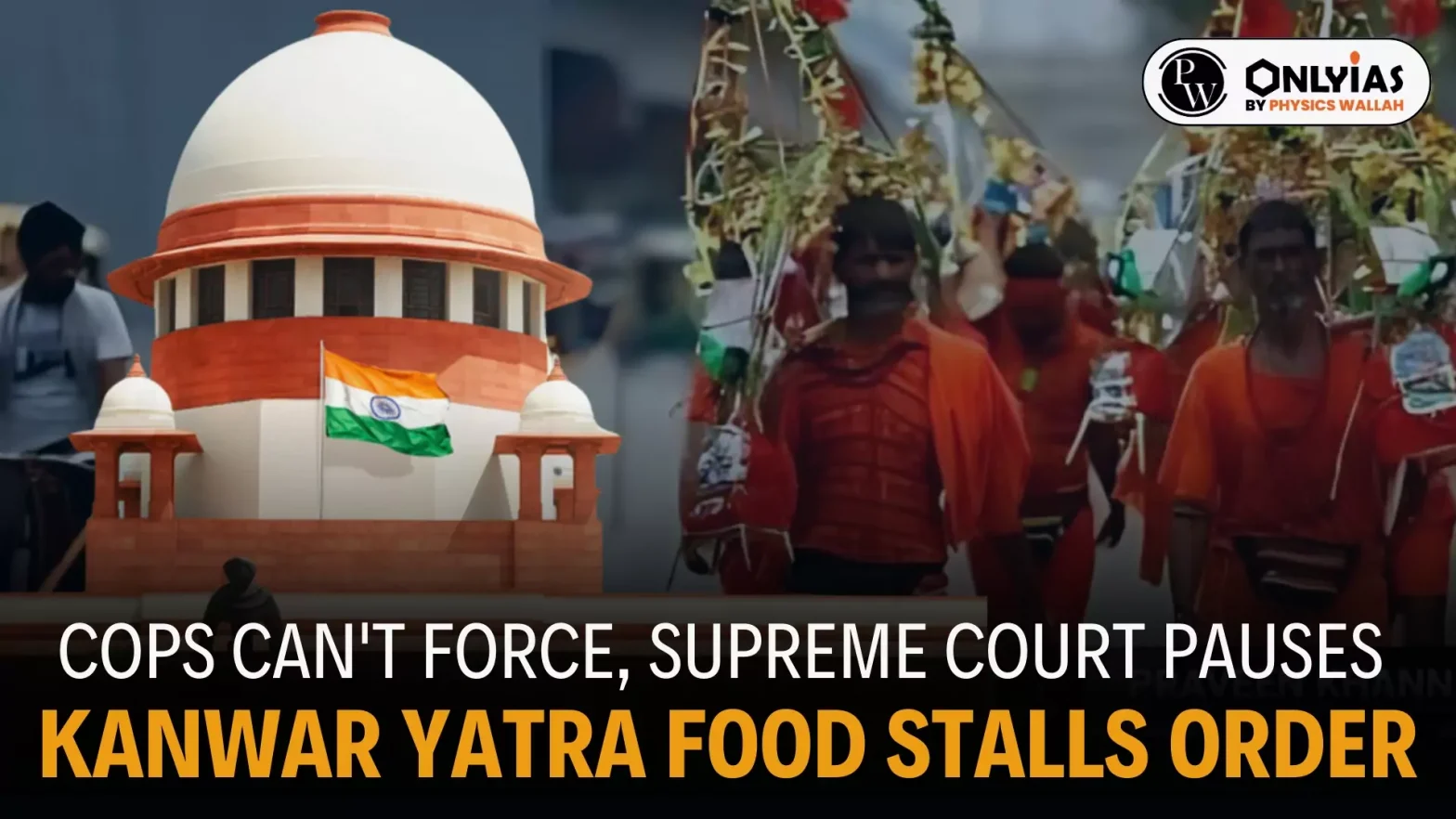The Supreme Court has stayed a controversial order by the BJP-ruled Uttar Pradesh and Uttarakhand governments directing eateries along the Kanwar Yatra route to display names of owners and staff, noting police could not enforce this and, at most, can only ask them to display food items.
Background
- Directives to display names: Authorities in UP and Uttarakhand issued directives to eateries and food stalls to display the names of their owners which led to an uproar.
- Objective: The authorities wanted to ensure kanwariyas (pilgrims) are served vegetarian food conforming to their preferences (and) maintaining hygienic standards
- Petition Filed: The Supreme Court was hearing a clutch of petitions challenging the UP and Uttarakhand move including one by NGO Association of Protection of Civil Rights (APCR).
- Two more petitions were also filed in the apex court challenging the move in the two states.
Enroll now for UPSC Online Course
Ethical Concern associated with this issue
- Possible Discrimination against Minorities: These directives promote discrimination solely based on religious and caste identity, as they do not require the display of food items being served or a statement that no non-vegetarian or non-satvik food is being served, but only the display of religious or caste identity explicit in one’s name
- Argument is that this directly breaches Article 15 of the Constitution.
- Right to Privacy: Compelling all proprietors to display names and addresses, also of their staff, can hardly achieve the intended objective of the authorities. It rather infirnge the fundamental rights to Privacy of the proprietors
- Secular character of Republic of India: It seems that Muslim-owned businesses are actively targeted based on fabricated and malicious information circulated by different people.
- Without support of provisions, if the directive is permitted to be enforced… it will infringe the secular character of the Republic of India.
- Police Abuse: It was a worrying situation where police were taking it upon themselves to create a divide where minorities would be identified and subject to boycott.
- Government claimed it to be voluntary: The reference was to the enforcement of what the authorities had said was a directive to be followed “voluntarily”.
- No statutory backing: No law gives police power to do this. The directive is for every hath-gaadi (hand-cart), tea-stall… giving of names of owners and employees does not serve any purpose
- Article 14 & Article 19 Violation: Directions impose unreasonable restrictions on the business activities of eatery owners and food-sellers, infringing upon their freedom to carry on any occupation, trade or business under Article 19(1)(g) of the Constitution.
- The orders are also manifestly arbitrary, disproportionate, and violate the right to equality.
Supreme Court take on the issue
- Display the Food not Names: Supreme Court prohibited the enforcement of the Uttar Pradesh and Uttarakhand directives to eateries along the route of the Kanwar yatra to display the names of the owners but said they will be required to display the kind of food they are selling to the Kanwariyas.
- You go to a restaurant depending on the menu, not who is serving. The idea of this directive is exclusion by identity. This is not the Republic of India we envisaged in Constitution
Check Out UPSC CSE Books From PW Store
![]() 23 Jul 2024
23 Jul 2024
